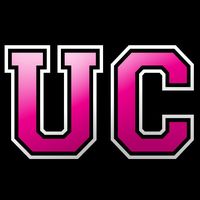Scientists Put Emphasis on ‘Girl Day’
By Kyle Plantz
Boston Globe
Alyssa Caddle leads a double life. Not only is she a New England Patriots Cheerleader, the Boston resident also holds two degrees in engineering and works as a program manager for EMC’s office of sustainability in Hopkinton. On Thursday, during February school vacation week, she helped show about 300 Girl Scouts and other students that science and math are all around us, and they can be fun and exciting to study, too.
“The Patriots cheerleaders love to get involved in anything that is girl-focused or STEM-focused,” Caddle said, referring to science, technology, engineering, and mathematics. “We love when we get the chance to come in and show girls that, yes, you can be a cheerleader, but that’s not all. You can be that and have a great career.”
At Patriot Place, with seats filled by students and chaperones from all over Massachusetts, Caddle and representatives of the engineering company Raytheon and Science from Scientists performed interactive experiments, like making “elephant toothpaste” (a colorful foam that forms and shoots out of a graduated cylinder when hydrogen peroxide interacts with potassium iodide) and testing whether it would be more comfortable to sleep on one nail or 1,000 nails (better sleep on 1,000 nails, since weight is better borne when distributed evenly).
The demonstrations are part of Raytheon’s annual observance of National Engineers Week nationwide; this was its first celebration of “Girl Day,” aimed at showing girls how creative math and science can be.
“We look at all these young women right here as the next generation of technological workforce,” said Allison Jeannotte, director of strategic initiatives at Raytheon. “Doing an event like this helps us to get them not only interested in science and technology, but excited about it and excited about pursuing those careers, because when you look at careers of tomorrow, they are very focused on technology and innovation.”
According to the National Science Foundation, only 11 percent of engineers are women, which is why Jeannotte said it is imperative to get girls excited about science during their late elementary school and early middle school years.
Amanda Schutt, director of development for Boston-based Science from Scientists, who performed several of the experiments, said she wants to show that there is more to science than some girls might expect.
“It’s funny, because if you Google ‘scientist,’ you get a clip art of a crazy, old, white guy with [Albert] Einstein-type hair,” she said. “We don’t all look the same, and so I think part of it was exposing them to what different women are doing in their careers. Alyssa is a prime example of smashing a stereotype.”
That resonated with Katherine Rodriguez, 14, of Lawrence, who said she wants to be a marine biologist.
“When I was a kid, that was my dream job: to become a Patriots Cheerleader,” she said. “She is very inspirational and my role model. If she can do it, I can, too.”
For 11-year-old Mati Bartel of North Attleborough, though, she said it is too soon to know what she wants to do.
“I really liked when the stuff came out of the tube,” she said, about the elephant toothpaste. “I don’t know what I want to do yet, but this was fun.”



